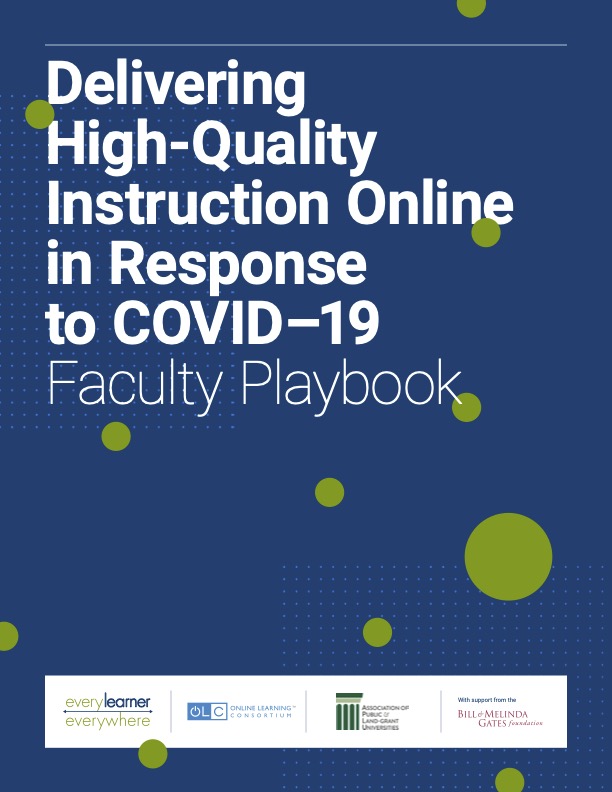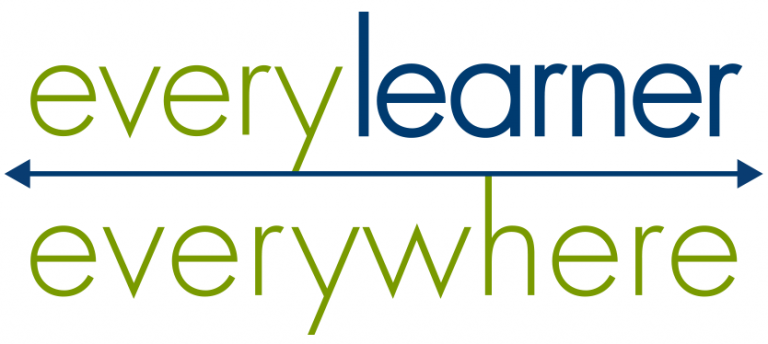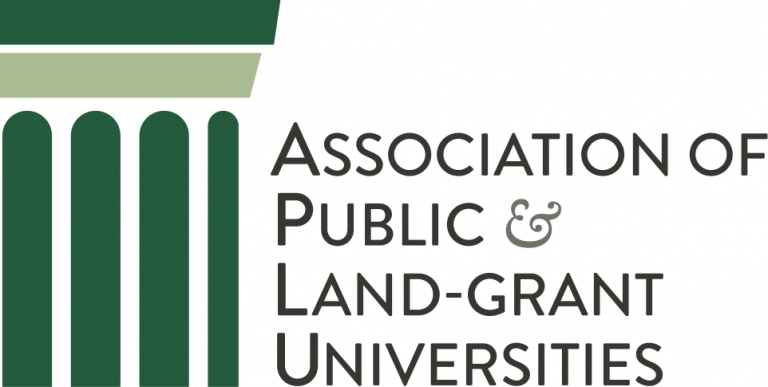About the Playbook
This playbook is a collaboration between the Online Learning Consortium (OLC), the Association of Public and Land-grant Universities (APLU), and the Every Learner Everywhere Network with support from the Bill & Melinda Gates Foundation. It is designed to serve as a concise guide in addressing faculty needs for online course design, teaching, and continuous improvement. This guide will provide you with the information you need to get started (and keep going!) at any level, along with resources for more in-depth information or assistance.





